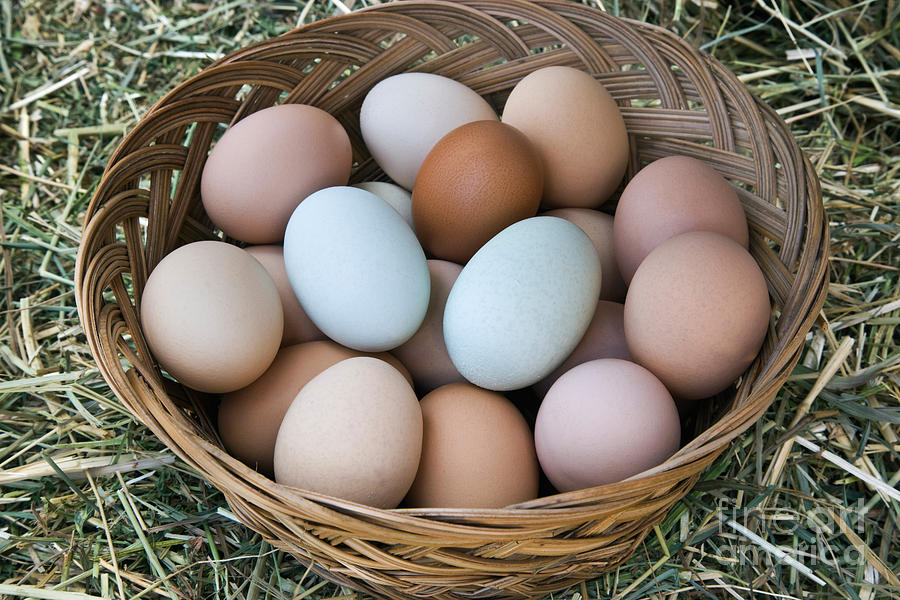Raising Chickens 101: Collecting, Storing, and Hatching Chicken Eggs

Collecting Eggs
You’ll want to collect eggs every morning; hens cackling loudly are a sign or clue that they’re laying. I usually have another look in the afternoon, as well.Oddly enough, chickens like to eat eggs as much as we do. Most egg-eaters learn on broken eggs and then begin to break eggs themselves. Chickens are opportunists and will pick at whatever looks edible. If you clean up broken eggs immediately and throw out any “eggy” straw or shavings, you can prevent egg-eating. A chicken that learns this habit can’t be cured, and others may follow her lead. You don’t want the chickens eating your eggs—you want them yourself!
You can tell what color eggs a hen will lay by the color of her ear. Yes, her ear. Birds don’t have external ears like humans do, so look for a small circle or oval of skin on the side of the head, next to the ear hole. If it’s white, your hen will lay white eggs; if it’s red, she’ll lay brown ones. There’s no difference in flavor or nutrition, but white eggs show the dyes more brightly at Easter! (Especially natural dyes, as pictured here.)
Cleaning and Storing Eggs
Eggshells have a “bloom,” a natural coating that protects the egg from bacteria. Avoid washing your eggs if you can; instead, wipe with a dry, rough cloth.If the eggs have a little manure on them, you can wipe with a damp cloth for small spots. A really dirty egg can be submerged and scrubbed with a vegetable brush. Always use warm water; cold water will make the egg shrink inside the shell and will draw in bacteria.
Let eggs air-dry thoroughly before putting them away. (I like to sort them by color, darkest to lightest, but that’s just me!)
Put them in dated egg cartons, and store them in the fridge on a shelf—not the door, where they will get jostled with every opening/closing. For partial cartons, I mark each egg in pencil with the day it was collected. Fresh eggs are good for a month in the refrigerator.
A cooking tip: To make deviled eggs, use week-old or older eggs, not this morning’s. The shells of really fresh eggs stick and don’t peel cleanly.
Hatching Chicken Eggs
If you want chicks, you’ll need a rooster. As a rule of thumb, 10 to 12 hens per rooster is a good ratio. While you could build an incubator and supervise the development of the eggs, it’s easiest to let the hens take care of hatching.A hen that is getting ready to nest becomes “broody.” This means that she wants to hatch her eggs. She’ll sit “tight” on the nest and resist having her eggs collected, whereas a non-broody hen will let you reach under her to collect eggs. A broody hen may even peck or screech at anyone coming near. There are ways to discourage broodiness, but why would you? The hen does all the work of hatching and raising—and you get free chicks!
If you do decide to get an incubator, a forced-air model with an automatic egg-turner is recommended, as eggs will need to be turned four to five times a day. The temperature inside the incubator should be between 99° and 102°F, while the humidity should remain between 55 and 60%. Chicken eggs will hatch after approximately 21 days. Check with your local cooperative extension service for more information.
Farm chickens can live 4 to 7 years and lay eggs for most of that time. Every year they go “off-lay” (stop laying eggs) for several months. This happens over the winter, when there’s too little daylight to trigger egg-laying. They’ll begin again in the spring.
See what to do when chickens stop laying eggs.